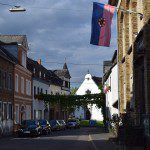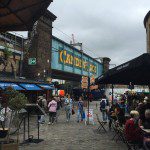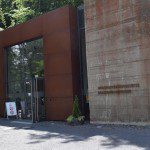Finally getting around to posting some pictures from the vacation, where the Holy Year added another dimension to the various stops at churches.
Our first Holy Door stop: the stumbled-upon St. Nicholas in Amsterdam, where, when we visited on a Monday and they advertised mass in English on Tuesdays, I realized I should have looked a little harder for English-language mass times in the area, the day before, as it seems like the Roman Catholic church(es) in Amsterdam and elsewhere have a significant immigrant/expat population (here’s a surprising long list of English-language services that I’ve since found).
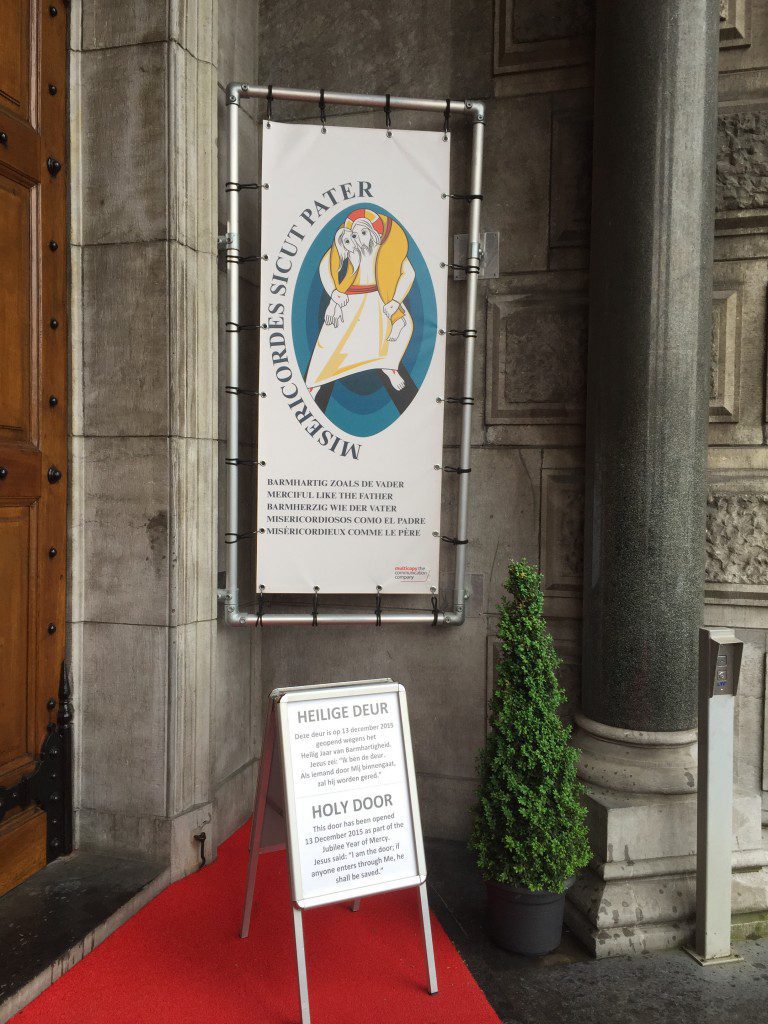
Midday mass was just about to start so I didn’t take pictures, and it was raining, so none from the outside, either. But here’s an image from Wikipedia:
![https://commons.wikimedia.org/wiki/File%3ABasilica_of_St._Nicholas_(interior)._Amsterdam%2C_Netherlands%2C_Northern_Europe-2.jpg; By Mstyslav Chernov (Self-photographed, http://mstyslav-chernov.com/) [CC BY-SA 3.0 (http://creativecommons.org/licenses/by-sa/3.0)], via Wikimedia Commons](https://wp-media.patheos.com/blogs/sites/533/2016/07/401px-Basilica_of_St._Nicholas_interior._Amsterdam_Netherlands_Northern_Europe-2.jpg)
And — bit of unseemly schadenfreude here — this church was unmistakably open for business, where both the historic Protestant churches in the city center had been turned into museums.
Our second stop: Antwerp.
Fun fact: admission to the church as a tourist is about EUR 5 per person. However, if you go in through the Holy Door, it’s free.
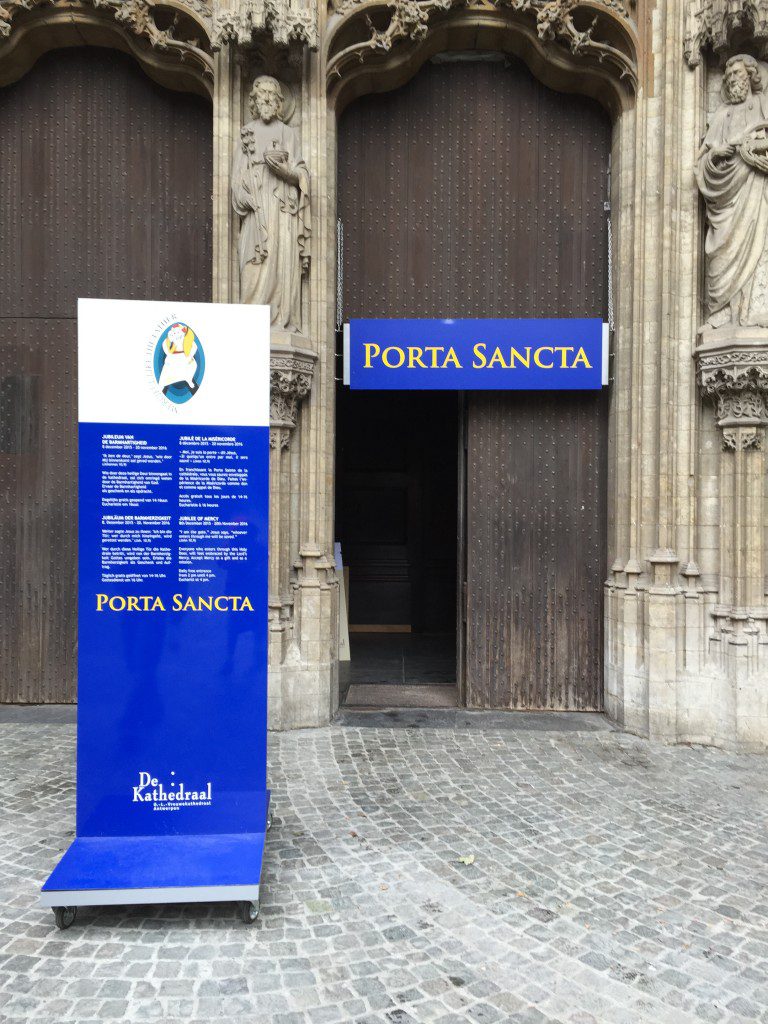


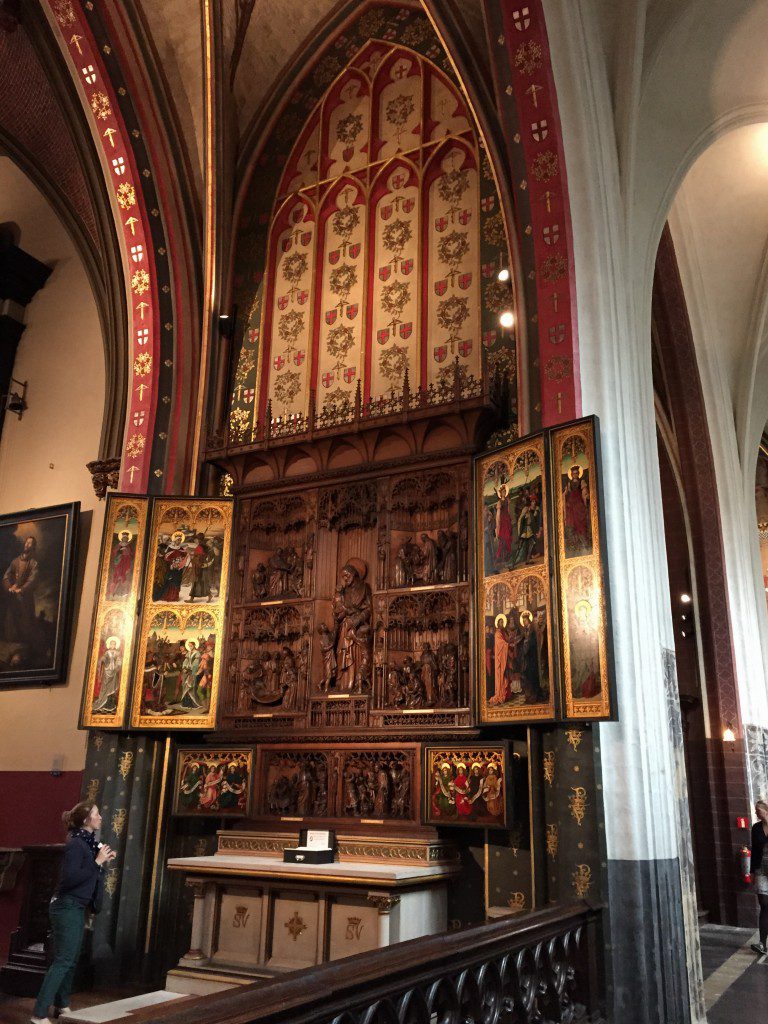
What was interesting about this church was the fact that its history was filled with destruction and rebuilding — first a fire and restoration, then a plundering with the Reformation, followed by another plundering with the French Revolution, so that the artwork (including Ruebens) is a mix rather than being in some fashion “authentic” to its original construction. What I particularly liked was the extensiveness of its painting and other decoration, not just in terms of paintings but painted/decorated walls — such a contrast to the modern notion that churches must be sparse.
The church seemed to be actively attempting to straddle the line between tourist destination and House of Worship. There are plenty of museum-ish explanations of the history of the building and the art, and there’s a lot to see, art-wise, but there are nice invitations to prayer, and several side chapel areas reserved for prayer. And the side door that’s designated the Holy Door takes you to a side area with, again, more invitation to pray and a priest on-duty for confession.
Next:
The Trier cathedral – “the oldest church in Germany” or maybe in all of Europe north of the Alps, or outside Rome, I forget which, and I left the Rick Steeves guidebook at our last stop in Germany, to reduce the weight of our luggage ever so slightly.

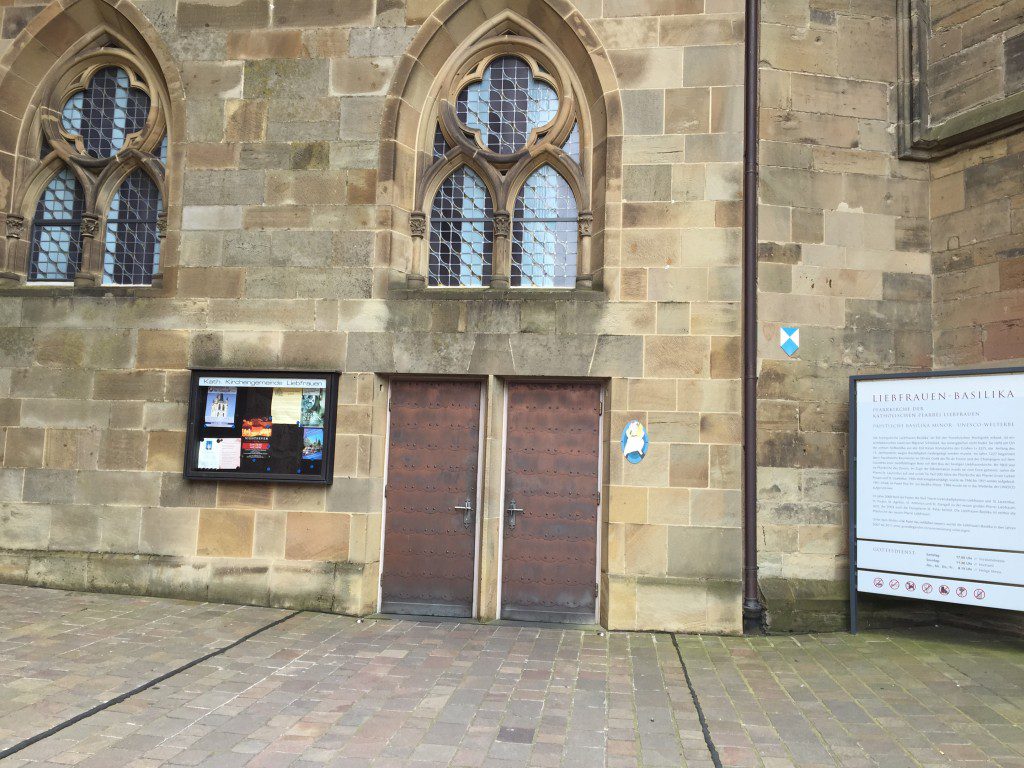
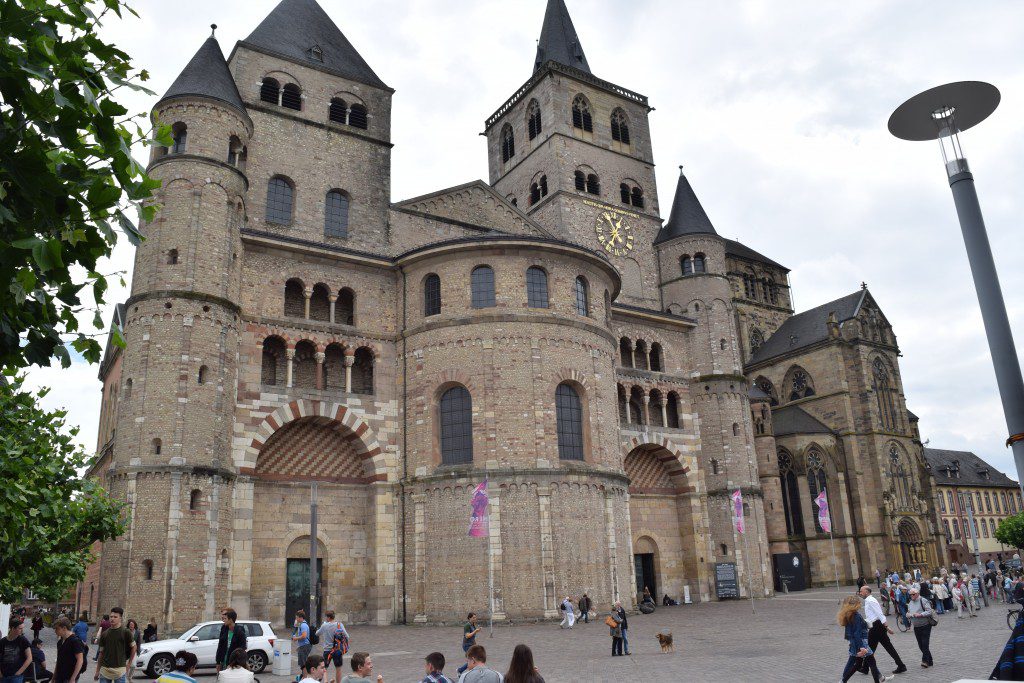
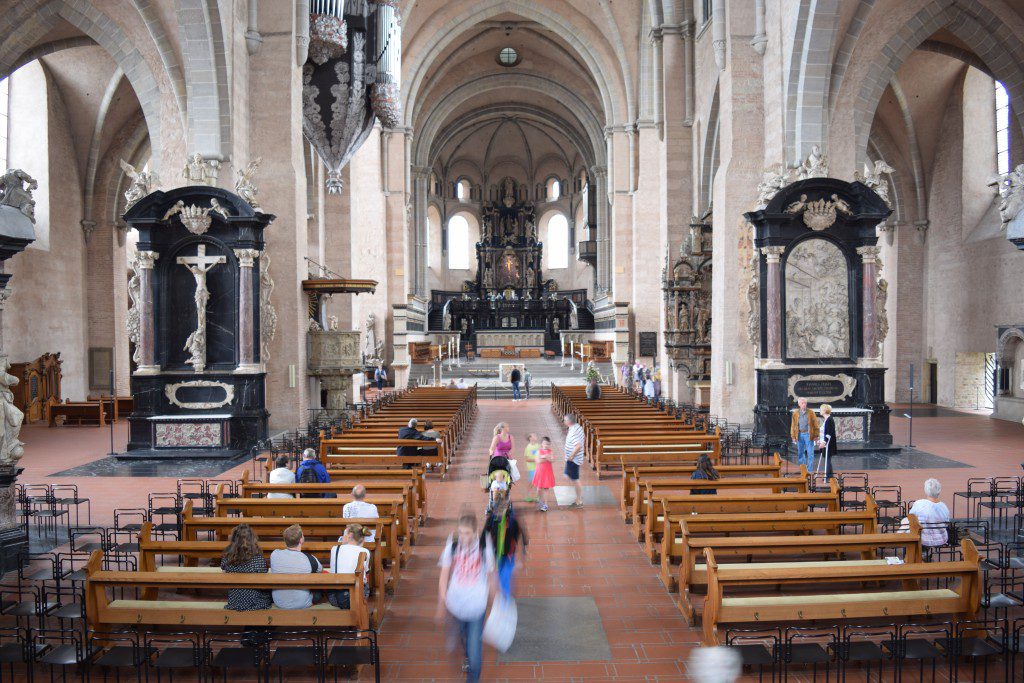
The building has a really cool history, what with having been built initially at the direction of Helena, the mother of Constantine, but with endless additions over the years. And it has a pretty major relic, the Holy Robe that Jesus is said to have worn before being crucified. Interestingly, the church doesn’t stake a big claim on its authenticity, but promotes it as symbolizing the unity of Christians because it was a “seamless garment.” The cathedral is connected to the next-door Liebfrauenkirche, and the Holy Door is a door to the connecting area between the two churches.
Next, Strasbourg: big, touristy, Gothic.
They took the concept of “door” a bit figuratively, designating a side chapel area instead of an actual door. This was probably the best solution to the fact that the remainder of the cathedral itself was mobbed by tourists.



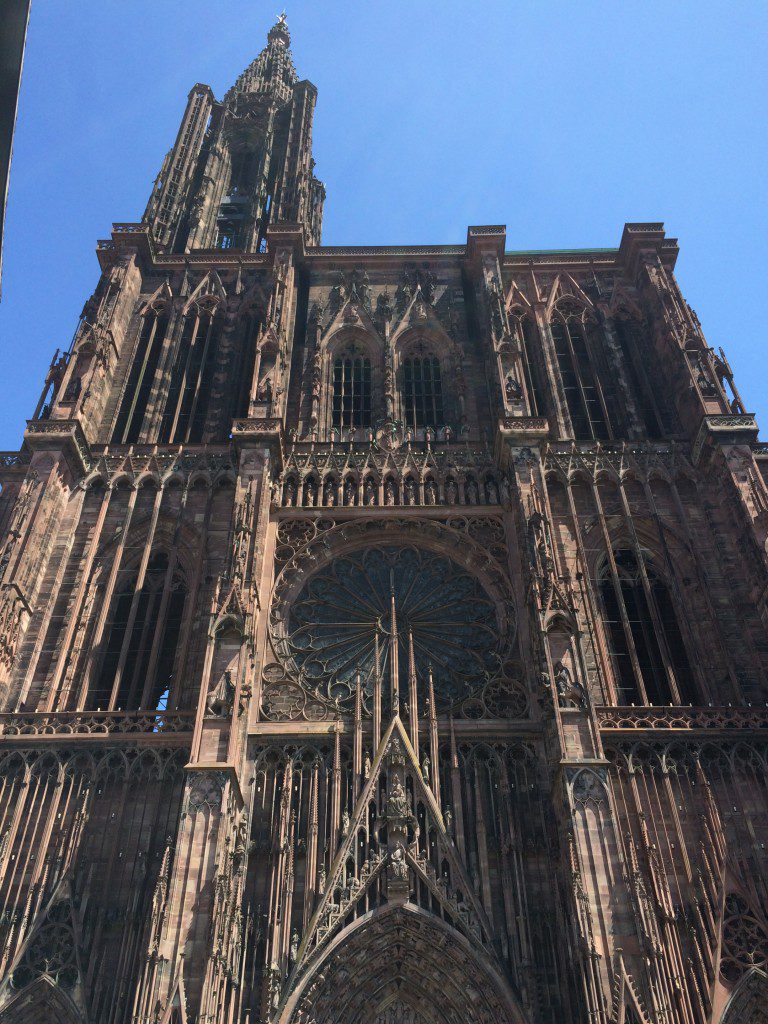
Next, Augsburg: three Holy Doors! Though they took a different approach altogether, naming three major churches as “Holy Doors” but having no designated “door” or other indicator of the door-ness of the church anywhere around. We found the list online, and I suppose the assumption is that you’d learn about it at your parish, rather than stumble upon it. These were also not tourist destination-churches, since Augsburg isn’t a major tourist destination.
What’s more, the odd thing is this: the “official” Holy Door is the Augsburg Cathedral. But there are multiple other sites at which you can “receive the plenary indulgence,” according to the website.
Here is the “Kobel,” an old pilgrimage church that just happens to be in my husband’s hometown in suburban Augsburg, on a hilltop overlooking the city.
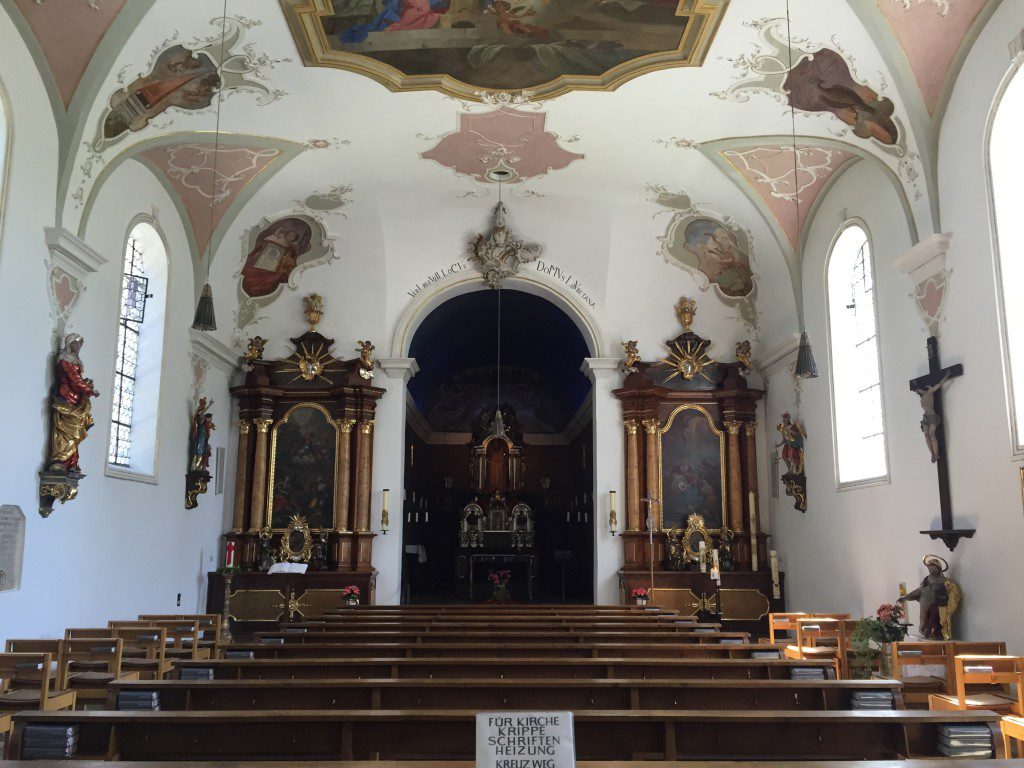
Here is the Basilica of St. Ulrich and Afra, where we attended the “Mass of the Nations.”

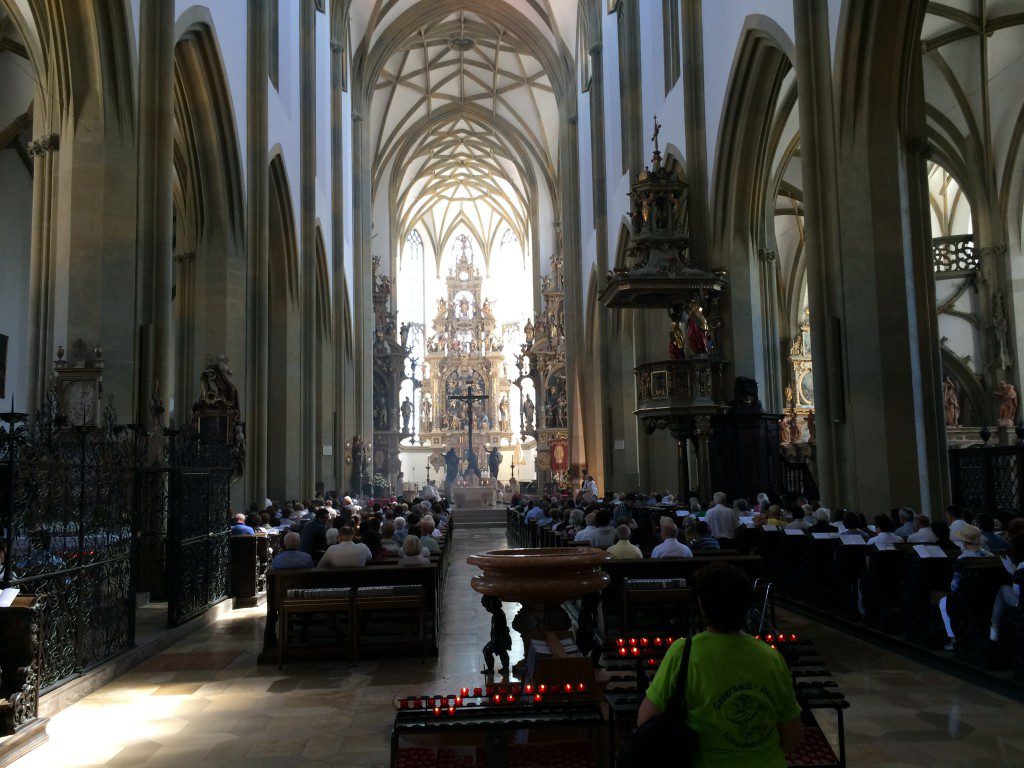
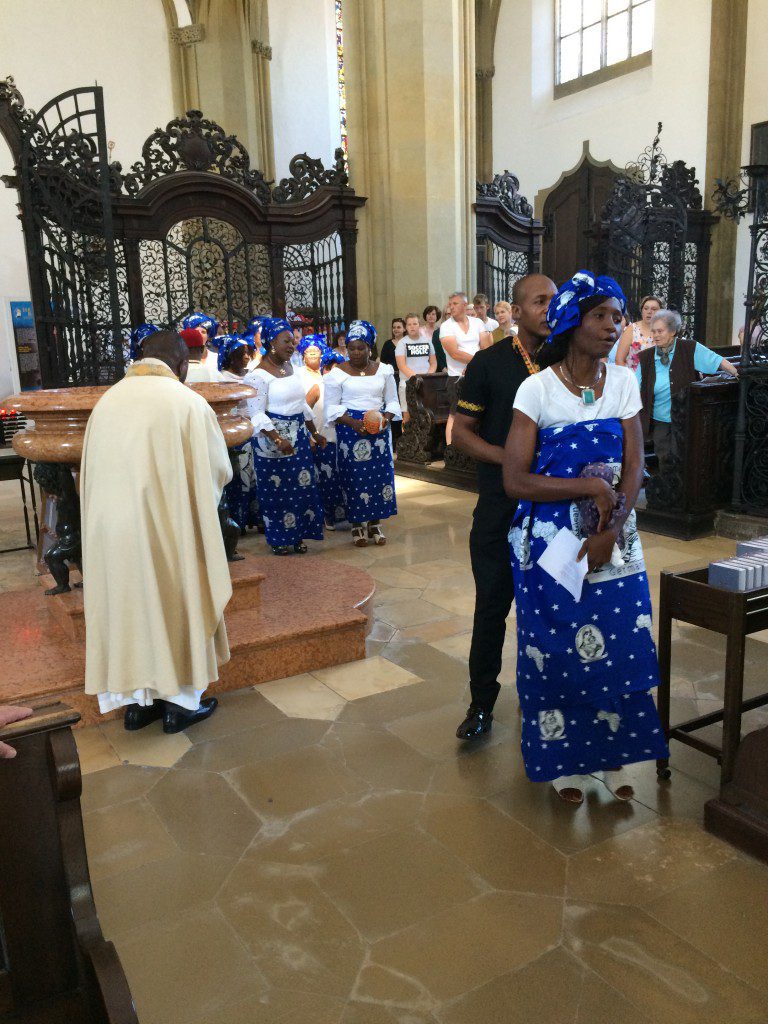

And, eh, there’s the Augsburg cathedral, of which we took no pictures, because it wasn’t nearly as nice as Ulrich & Afra. The brochure we picked up about it described it as what amounted to an extended effort at “keeping up with the Joneses,” trying to remodel and add on in each successive building style and in the end never creating anything remarkable.
Last stop: Munich. Holy Door on the side of the church, with nothing remarkably Year of Mercy-ish inside except a brochure rack.
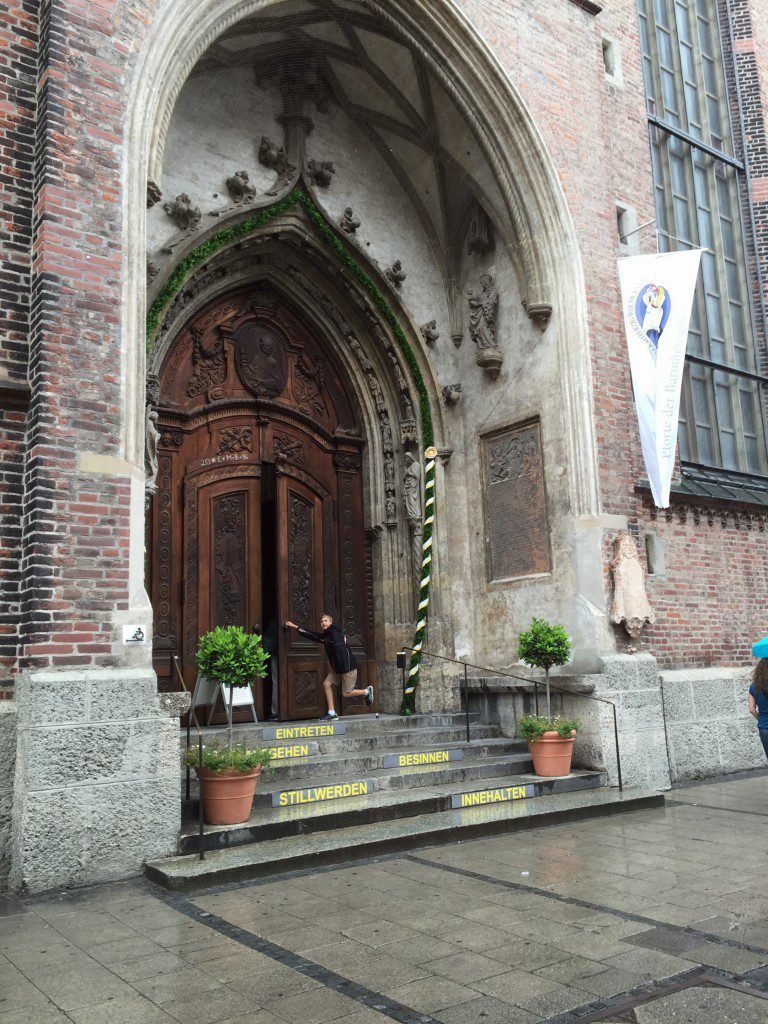
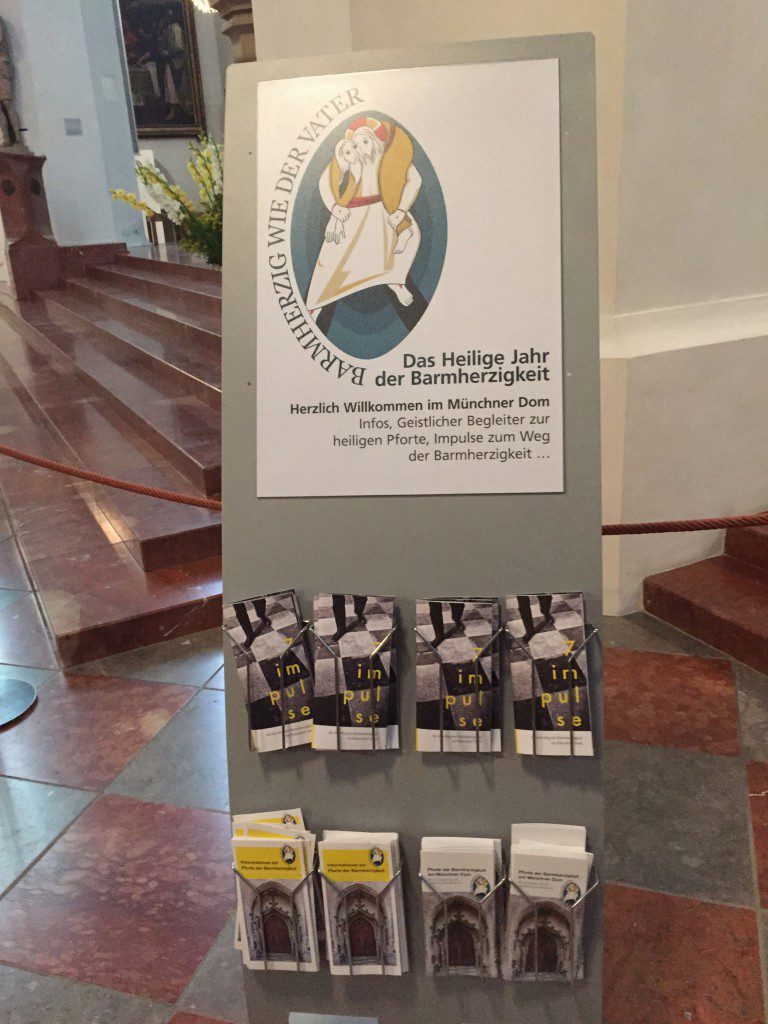
And there’s your Holy Door tour 2016.
Images: own work except as noted.




